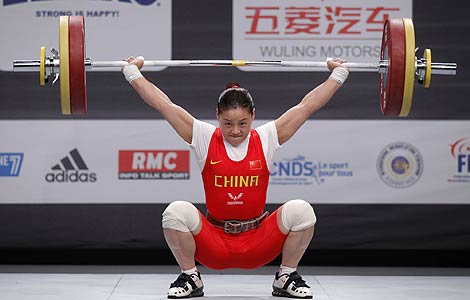US target for green products too high for firms
Updated: 2011-11-11 07:18
By Li Jing (China Daily)
|
|||||||||
BEIJING - The United States' plan to persuade countries to lower the tariffs they charge on environmental products and services could create business opportunities for Chinese firms.
At the same time, though, officials and analysts said the US should try to seek a reduction amount that is reasonable.
Leaders from the 21 members that make up Asia-Pacific Economic Cooperation, an organization that promotes economic growth and prosperity in the Asia-Pacific, will meet on Saturday in Honolulu, Hawaii, to look for ways to encourage the use of green technology and reduce trade barriers.
The United States hopes to persuade China and other countries in the organization to lower the tariffs charged on 153 green products, such as wind turbines and solar panels. The US proposal would have them bring the rate imposed on imports of those things down to 5 percent.
In China, the average tariff on green products now stands at less than 7 percent, the Ministry of Commerce said.
Wu Hailong, assistant foreign minister, said Asia-Pacific Economic Cooperation members have taken a "fundamentally supportive attitude" toward the US' proposal. "But the expectations for the outcome are too high and are beyond the reach of members from developing countries," Wu said at a recent press briefing in Beijing.
In recent years, the Chinese government has taken money, research, resources, and a combination of incentives and put them into developing technologies related to clean energy, renewable energy and energy efficiency.
China has transformed itself during the past two decades from a country that imports most of the low-carbon technology it uses into a manufacturer of various types of low-carbon technology, said Melanie Hart, an analyst with the Center for American Progress.
CECEP Solar Energy Technology, a unit of the State-owned China Energy Conservation and Environmental Protection Group, has been eyeing the US market, according to Cao Huabin, general manager of the company.
"The company has invested (a large amount) in Italy, Canada and the Czech Republic," Cao said.
"We've been planning to enter the US market, but there are a lot of uncertainties." Trade protectionism will hurt the green industry, China and the US, Cao said.











